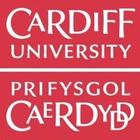- 最新资讯及文章
- Find usIDP AustraliaIDP BahrainIDP BangladeshIDP CambodiaIDP CanadaIDP ChinaIDP EgyptIDP GhanaIDP Hong KongIDP IndiaIDP IndonesiaIDP IranIDP JordanIDP KenyaIDP KoreaIDP KuwaitIDP LebanonIDP MalaysiaIDP MauritiusIDP Middle EastIDP NepalIDP New ZealandIDP NigeriaIDP OmanIDP PakistanIDP PhilippinesIDP Saudi ArabiaIDP SingaporeIDP Sri LankaIDP Taiwan, ChinaIDP ThailandIDP TurkeyIDP UAEIDP VietnamIDP Corporate
- Social
- 简体中文
- Where we operate
- Courses
- Scholarships
- IELTS
- About IDP
- 留学生活服务
- 最新资讯及文章
- Find us
- Find us
- Find nearest IDP offices
- IDP Australia
- IDP Bahrain
- IDP Bangladesh
- IDP Cambodia
- IDP Canada
- IDP China
- IDP Egypt
- IDP Ghana
- IDP Hong Kong
- IDP India
- IDP Indonesia
- IDP Iran
- IDP Jordan
- IDP Kenya
- IDP Korea
- IDP Kuwait
- IDP Lebanon
- IDP Malaysia
- IDP Mauritius
- IDP Middle East
- IDP Nepal
- IDP New Zealand
- IDP Nigeria
- IDP Oman
- IDP Pakistan
- IDP Philippines
- IDP Saudi Arabia
- IDP Singapore
- IDP Sri Lanka
- IDP Taiwan, China
- IDP Thailand
- IDP Turkey
- IDP UAE
- IDP Vietnam
- IDP Corporate
- Social
- 切换语言
- IDP教育 /
- 学院及大学 /
- United Kingdom /
- 卡地夫大學 /
- BA (Hons) Ancient History


地点
United Kingdom
资格
Bachelor Degree with Honours
费用
GBP22700
(2025)
时长
3 Year(s)
下个学年
29 September 2025
入学成绩
6.5
IELTS考试COURSE_INFO
- 奖学金 查看所有奖学金
- 实习
入学要求 卡地夫大學
A level - ABB-BBC. International Baccalaureate - 32-30 overall or 665-655 in 3 HL subjects. You must have or be working towards: English language or Welsh language at GCSE grade C/4 or an equivalent (such as A-levels). If you require a Student visa, you must ensure your language qualification complies with UKVI requirements. We do not accept Critical Thinking, General Studies, Citizenship Studies, or other similar equivalent subjects. We will accept a combination of BTEC subjects, A-levels, and other qualifications, subject to the course specific grade and subject requirements. IELTS - At least 6.5 overall with a minimum of 5.5 in each sub-score TOEFL iBT - At least 90 with minimum scores of 17 for writing, 17 for listening, 18 for reading and 20 for speaking.
申请截止日期
申请截止日期无法使用 与升学顾问对谈 了解更多细节资讯
Further information
If you aren't eligible for the above entry requirements, you might ant to explore pathway options at 卡地夫大學. If you want to find out more, speak to our counsellors.
泰晤士高等教育世界大学排名 (THE)
201st / 1250
泰晤士高等教育世界大学排名 (THE)21st / 130
完全大学指南 (Complete University Guide)IDP学生心声
暂时没有收到对此大学的评分。
推荐给你
- 大学
- United Kingdom
- 资金类型: Fee waiver/discount
- 大学
- United Kingdom
- 资金类型: Fee waiver/discount
- 大学
- United Kingdom
- 资金类型: Fee waiver/discount
- 大学
- United Kingdom
- DEADLINE: Nov 2024
- 资金类型: Fee waiver/discount
- 大学
- United Kingdom
- 资金类型: Fee waiver/discount
- 大学
- United Kingdom
- 资金类型: Cash
Your action plan
步骤 1
Shortlist your courses
Choose the best three courses you’re most likely to pursue.
步骤 2
Check your eligibility
Get an instant in-principle offer for courses with the IDP FastLane tag.
步骤 3
Apply through IDP Live
Fill out the form once and use it to apply to multiple courses.
IDP FastLane 如何运作?
通过FastLane的「原则性录取通知」,你将在几分钟内知道自己是否获取录!
选择一个院校机构和课程
建立你的学术个人档案
提交你的《原则性录取通知》申请
你选择的机构将会在几分钟内发送结果!
与升学顾问一起准备申请




